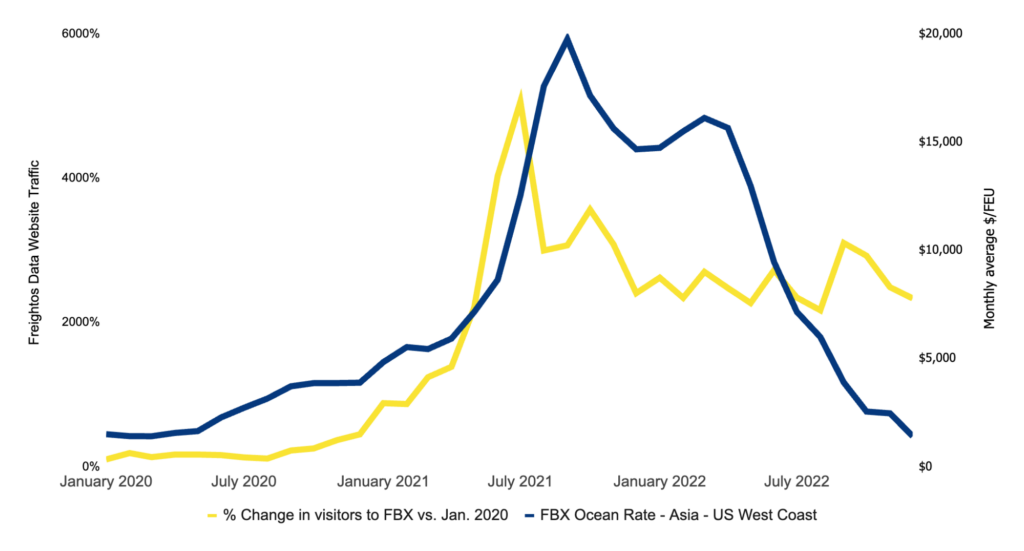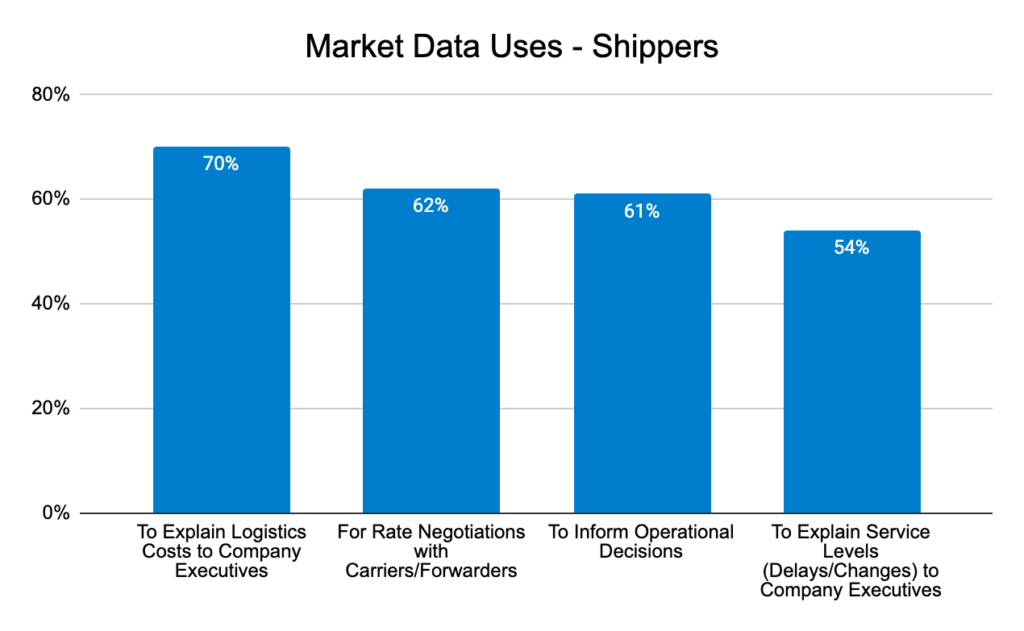Freight Data is Power, and We Are All Superhuman.

Information is power. And these days, we are all superhuman, with more data at our fingertips than ever. But, at the same time, so are our customers.
In the 19th century, the pursuit of knowledge was a solo one, perhaps fueled by slow correspondence or societies. The result was multiple discoveries made simultaneously, whether calculus (Liebenz and Newton) or incandescent light bulbs (Swan and Newton).
But with digitization came the digital revolution: Encarta on a disc, pages of blue links with web directories (yahoo, anyone?) and search engines. At each stage, we moved closer to the era of instantaneous information access.
In an age where information like transit time, supply chain events, freight pricing and carrier reliability is a click away, we are witnessing an unprecedented shift in the balance of power towards the customer, with a real world impact on how freight forwarders interact with customers with freight data in their pocket.
But more on that soon.
Freight customers know more than ever.
This democratization of information has transformed the way importers, exporters, forwarders and carriers interact. Yes, there are still sealed contracts…but forwarders, carriers, and shippers are more empowered than ever before. A manufacturer will not wait to be informed by their forwarder about a typhoon driven port shutdown or a strike in Long Beach; their broker will wake up to a crowded inbox of questions. Customers know general market trends, rates, and capacity. But how is that data actually being used? Or is it just making noise?
The Thirst for On-Demand Information
The wake up call for freight market intelligence was, of course, the meteoric fluctuations in freight rates, unleashing constant freight rate monitoring, index-linking, and 24 hour cable news coverage of strikes or canal blockages.
What happened after COVID though?
The answer is that the interest remains.
While freight rates declined in 2022, interest in Freightos’ market intelligence stayed stable. But there’s better proof in that interest than website traffic.
In a survey conducted in March 2023 across hundreds of forwarders, BCOs and carriers, the answer was that, of course, freight data matters.
An overwhelming 98% of respondents indicated that freight market intelligence has become more important for their businesses during the pandemic. On a scale of 1 to 5, the average importance of staying updated on international freight market developments was approximately 4.5. Keeping abreast of the international freight market’s changes is critical for businesses in the industry.
This is not about general freight curiosity.
The way importers and exporters choose to use global air and ocean freight data speaks louder though.
The majority of respondents used the data to explain their current logistics costs and budgets to their executives or management. When costs were high, executives wanted explanations. When they dropped, they wanted to make sure it dropped enough.
Of course, improving negotiations was a close second, followed by using it to inform operational decisions. Last, of course, was explaining how or why things went wrong (or, more optimistically, right) to executives.
The data is there for their use. If there was a question about transparency in freight a decade ago, the answer is clear, It’s here.
But is it a threat?
Staying Relevant In A Literal Ocean Of Freight Data
With information everywhere, forwarders and other players in the global freight industry needed to adapt. They actually already have. The bad actors who depended on survival by marking up rates or sharing partial information have been in a long and slow decline.
This isn’t just a logistics thing either.
In a famously leaked message about the AI war titled “We Have No Moat. And neither does OpenAI”, the anonymous Google employee emphasizes that Facebook/Meta is winning the war because they got data out first:
Paradoxically, the one clear winner in all of this is Meta. Because the leaked model was theirs, they have effectively garnered an entire planet’s worth of free labor. Since most open-source innovation is happening on top of their architecture, there is nothing stopping them from directly incorporating it into their products.
Today, leading forwarders and carriers are focusing on sharing information, not hiding it. Kuehne + Nagel’s SeaExplorer is one example of this. Embracing transparency, and engaging in informed discussions with clients unlocks the ability to provide value beyond services is the key to remaining relevant.
Companies can become superhuman in this information age by harnessing data not only for their benefit but also for their clients. By providing data, insights, and leveraging AI for predictive analysis, they can become invaluable partners in their clients’ journey.
The information age has empowered us all to become superhuman in our abilities. In the freight industry, this superpower is being harnessed to drive decision-making, improve transparency, and ultimately deliver better services. As we look to the future, the freight industry’s success will be defined not just by the cargo it transports but also by the information it leverages.

